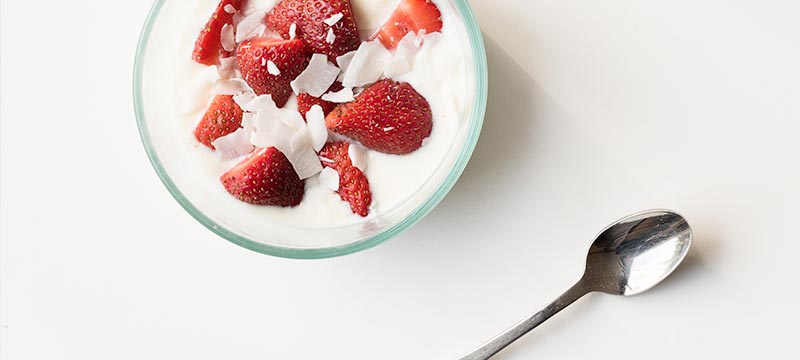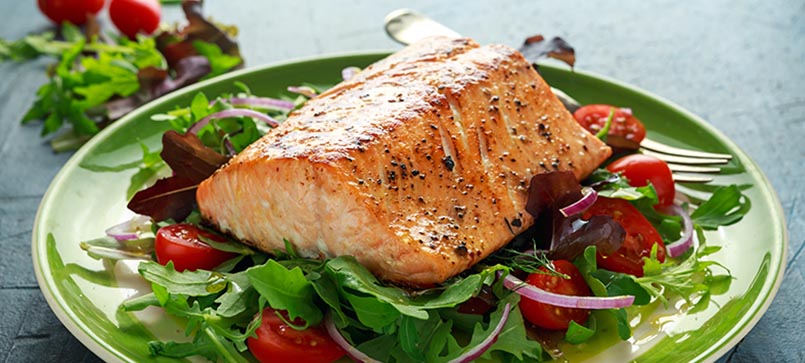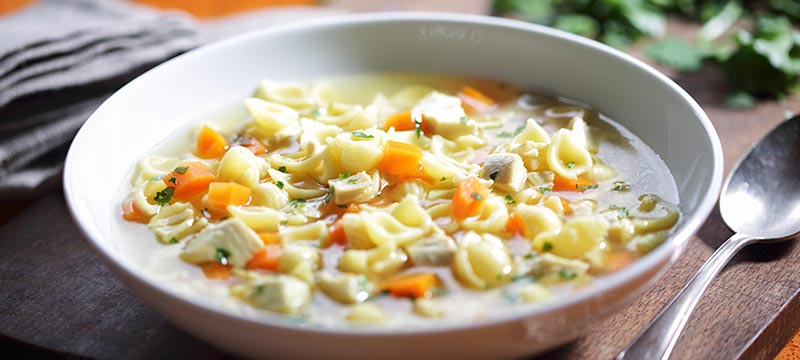5 superfoods to boost your immunity

While the saying “an apple a day can keep the doctor away” still rings true, there are many foods that can help support your immune health. Here are our favorite immune-boosting foods, along with tips on how to add them into your daily routines.
Yogurt and other fermented foods
 Our gut is full of bacteria, and for a good reason. Healthy bacteria, called “probiotics,” help keep our digestion systems regular and play a role in a healthy immune system.
Our gut is full of bacteria, and for a good reason. Healthy bacteria, called “probiotics,” help keep our digestion systems regular and play a role in a healthy immune system.
Many fermented foods1 contain probiotics, including:
- Yogurt
- Miso
- Sauerkraut
- Kimchi
- Kefir
Yogurt gives you one of the biggest bangs for your bacteria buck and is quite a versatile ingredient. Plus, some fortified dairy-based or plant-based yogurts may contain vitamin D, another important nutrient for immunity.
Buying tip
Check out the ingredients list on your favorite yogurt to see the live active yogurt cultures. To get a variety of probiotics, look for a yogurt that contains five or more strains (Lactobacillus bulgaricus and Streptococcus thermophilus being two of the most common strains).
How to enjoy
- Enjoy yogurt by itself or as a parfait alongside your favorite chopped fruit and nuts
- A ½ cup of nonfat Greek yogurt makes for a great base for smoothies
- Use plain yogurt as a healthy 1:1 sour cream swap in savory recipes
Green tea
 There’s a reason why tea2 is a go-to beverage when you’re not feeling well. It may be because many teas, particularly green and black varieties, contain antioxidants. Antioxidants are substances that reduce damage to cells within your body caused by oxidation.
There’s a reason why tea2 is a go-to beverage when you’re not feeling well. It may be because many teas, particularly green and black varieties, contain antioxidants. Antioxidants are substances that reduce damage to cells within your body caused by oxidation.
You don’t have to wait until you feel sick before pulling out the tea bags, though. Green tea is another tool to add to your immune-boosting toolkit now.
How to enjoy
- Add ginger, lemon juice, honey, mint or peppermint to your hot or iced green tea for different flavor combinations
- Add a scoop of green tea powder, like matcha, to your morning smoothie or oatmeal
Salmon and other omega-3 fatty acid-rich foods
 Omega-3 fatty acids3 are important for healthy cells and immune function. They can be found in some plant oils, like walnuts, flaxseed and soybeans, as well as cold-water fish and other seafood (salmon, mackerel, tuna).
Omega-3 fatty acids3 are important for healthy cells and immune function. They can be found in some plant oils, like walnuts, flaxseed and soybeans, as well as cold-water fish and other seafood (salmon, mackerel, tuna).
How to enjoy
- Add ground flax, chia or hemp seeds to cereals, yogurt or salads.4 This will also add extra fiber, flavor and crunch.
- Snack on edamame or walnuts.
Garlic
 Garlic5 is a key ingredient in many recipes, thanks to its rich flavor profile. Garlic offers more than just flavor—it’s full of antioxidants and has anti-inflammatory properties.
Garlic5 is a key ingredient in many recipes, thanks to its rich flavor profile. Garlic offers more than just flavor—it’s full of antioxidants and has anti-inflammatory properties.
Cooking tip
To get the benefits of the immune-boosting compounds in garlic, crush, slice or mash whole garlic. Then, let it sit for 10 minutes before exposing it to heat. Too much heat can destroy some of garlic’s healthy benefits, so try adding crushed garlic to your hot meal right before it finishes cooking.
Eating whole garlic cloves may contribute to an upset stomach in some individuals. You can still obtain all the benefits and flavor from garlic with garlic-infused oil.6
How to enjoy
- Add raw, crushed garlic into your favorite dips, dressings, hummuses, marinades and salsas
- Sprinkle minced or crushed garlic on top of toast, potatoes or pizza
Chicken soup
 Your grandmother was right—chicken soup truly is good for the body and soul. The liquid and nutrients in the soup help keep you hydrated, and it tastes good. As a bonus, chicken is high in protein and zinc. Carrots are rich in beta-carotene and vitamin C. All of these nutrients support immune health.
Your grandmother was right—chicken soup truly is good for the body and soul. The liquid and nutrients in the soup help keep you hydrated, and it tastes good. As a bonus, chicken is high in protein and zinc. Carrots are rich in beta-carotene and vitamin C. All of these nutrients support immune health.
How to enjoy
- Try this quick and easy chicken noodle soup recipe
- Or, check out these recipes for warm and hearty soups
Don’t wait until you feel unwell to add these foods into your daily routine. Start supporting your immune system now, right from your kitchen.
Ever wonder how foods actually nourish your body? Check out how foods fuel your mind, body and soul.
1https://www.eatright.org/health/wellness/healthful-habits/how-to-keep-your-immune-system-healthy
2https://www.eatright.org/health/wellness/preventing-illness/the-health-benefits-of-tea
3https://ods.od.nih.gov/factsheets/Omega3FattyAcids-Consumer/
4https://www.eatright.org/health/essential-nutrients/fats/what-are-omega-3-fatty-acids
5https://www.ncbi.nlm.nih.gov/pmc/articles/PMC7402177/
6https://www.eatright.org/health/allergies-and-intolerances/food-intolerances-and-sensitivities/what-is-the-low-fodmap-diet
Was this article helpful?
Don't wait! Unlock a healthy, happy new year, at no cost to you.
This content is not intended to be a substitute for professional medical advice, diagnosis or treatment. Always seek the advice of your physician or other qualified health provider with any questions you may have regarding a medical condition.
